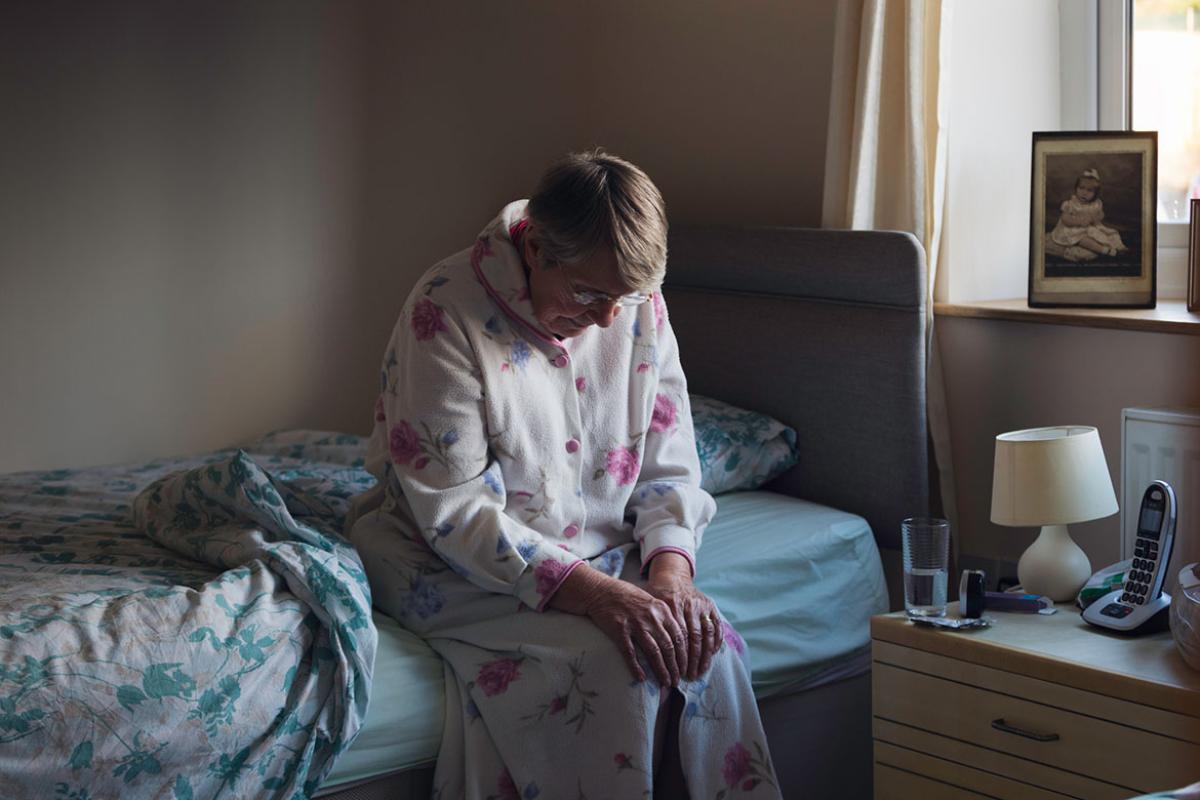PROVIDENCE, R.I. — The American Medical Association (AMA), the Rhode Island Medical Society (RIMS), and officials from the Rhode Island Department of Health and the Rhode Island Department of Behavioral Healthcare, Developmental Disabilities and Hospitals announced today a partnership to develop and distribute a statewide educational toolbox for healthcare providers to help reverse the state's opioid epidemic. Rhode Island and Alabama are the first two states participating in this pilot program with the AMA.
The pilot program will build a toolbox — available online and in print — that incorporates the best information from the AMA, the RI Medical Society, and state health officials. It will be provided to physicians and other health care professionals with key data, valuable resources, and practice-specific recommendations they need to enhance their decision-making when caring for patients suffering from chronic or acute pain and opioid use disorders, as well as for patients needing overdose prevention education.
The toolbox will be released in September, and the AMA, RIMS and state officials will work together to distribute it throughout Rhode Island.
The AMA was awarded funding through the Prescriber Clinical Support System for Opioid Therapies, funded by the U.S. Substance Abuse and Mental Health Services Administration (SAMHSA) and administered by the American Academy of Addiction Psychiatry.
"The opioid epidemic is complex; there are multiple factors that can lead to addiction, and patients have many different needs. We want to provide physicians with a relevant set of useful tools," said Patrice A. Harris, MD, chair of the American Medical Association Board of Trustees and the chair of AMA's Task Force to Reduce Opioid Abuse, at the program's launch. "That is why the AMA is collaborating with the Rhode Island Medical Society and the State of Rhode Island to provide physicians and other health care professionals with the data, tools and resources they need to better inform their prescribing practices."
Preventing overdose deaths through safer prescribing is a key strategy in the action plan by the Overdose Prevention and Intervention Task Force, which was created by Rhode Island Gov. Gina M. Raimondo.
"Physicians and other healthcare providers are key partners in our work to address Rhode Island's drug overdose crisis," said Nicole Alexander-Scott, MD, MPH, director of the Rhode Island Department of Health and co-chair of the state task force. "Yet to do their jobs most effectively, they need the right resources and support. We are pleased to partner with the American Medical Association and Rhode Island Medical Society to develop this new set of tools for Rhode Island healthcare providers."
Sarah Fessler, MD, president-elect of the Rhode Island Medical Society, said the following:
"The RI Medical Society is honored to welcome the top physician leader in the country to RI. By choosing our medical society and our state to benefit from this grant, the AMA clearly recognizes the efforts being made here, on so many levels, to battle the opioid epidemic and save lives.
"Our governor has created this opioid task force and committed RI to an action plan that will help get us to the goal of reducing deaths related to opioids by one-third in three years. Our Senate President and House Speaker have strengthened our Good Samaritan law to help ensure that a rescue from an overdose is widely available. They and their General Assembly colleagues passed a budget that provides critical funding for substance use disorder treatment and recovery.
"The RI Medical Society joined with our elected leaders on legislation to limit initial prescriptions for opioids, and to make our prescription drug monitoring program more effective in protecting patient safety.
"Now we are pleased to join with the AMA, the RI Department of Health and the Department of Behavioral Healthcare, Developmental Disabilities and Hospitals to design and develop a Rhode Island-specific toolbox of resources to help us provide consistently excellent care for our patients who are in pain or who suffer from opioid use disorders.
"Our road is still long. However, with this toolbox we will have more resources to guide the care of our pain patients, improve safety, identify non-pharmacological treatment alternatives and provide access to medication-assisted therapy for our patients who need it."
Media Contact:
About the American Medical Association
The American Medical Association is the physicians’ powerful ally in patient care. As the only medical association that convenes 190+ state and specialty medical societies and other critical stakeholders, the AMA represents physicians with a unified voice to all key players in health care. The AMA leverages its strength by removing the obstacles that interfere with patient care, leading the charge to prevent chronic disease and confront public health crises and, driving the future of medicine to tackle the biggest challenges in health care.



